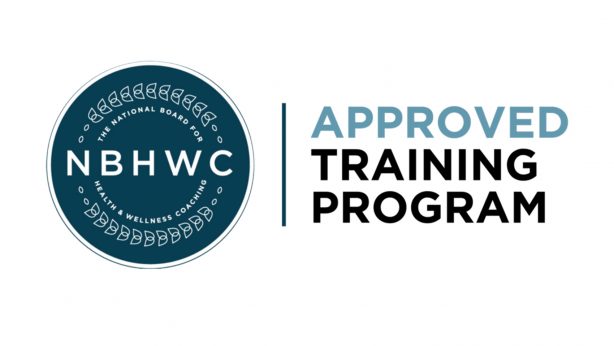
|
Table of Content
|
Tobacco cravings or smoking desires can be intense for the majority of tobacco users. You can, however, resist these desires.
When you have a strong desire to use tobacco, remember that whether you light a cigarette or take a dip of chewing tobacco, the desire will likely vanish within 5 to 10 minutes. Every time you resist a cigarette need; you get one step closer to quitting smoking for good.
1. 10 Best Tips To Stop Tobacco Cravings

We have often heard people saying that it’s very hard to break the habit of consuming tobacco. Tobacco cravings are hard to control and one fights it hard to do so. Tobacco is injurious to health and often leads to dangerous and fatal medical conditions. Here are 10 best tips to stop tobacco cravings.
- Identify Triggers: Recognize situations, emotions, or activities that trigger tobacco cravings. Common triggers include stress, boredom, social situations, or specific times of the day.
- Practice Deep Breathing: Practice taking slow and deep breaths when the craving hits. This will help relax your body and calm your mind.
- Healthy Eating: Eating sugar-free gums and healthy snacks also helps in regulating cravings. It keeps the mouth busy and thus reduces the cravings.
- Stay Hydrated: Drink plenty of water throughout the day to curb cravings and keep your mouth and throat moist.
- Distract Yourself: Find distractions to shift your focus away from cravings. Try reading a book, watching a movie, or playing a game on your phone.
- Practice Mindfulness: Use mindfulness techniques like meditation or yoga to stay present and manage cravings without giving in to them.
- Keep Yourself Occupied: Distracting and keeping yourself constructively busy helps reduce the cravings to a great extent. Try exercising, meeting friends, and fulfilling hobbies.
- Seek Support: Reach out to friends, family, or support groups for encouragement and accountability. Sharing your struggles with others can help you stay motivated to quit.
- Remove Triggers: Rid your environment of tobacco products, lighters, and ashtrays to reduce temptation and make it easier to resist cravings.
- Stay Motivated: Treat yourself to small victories to stay motivated. This will reinforce the commitment to quitting.
2. Why Should You Stop Tobacco

Quitting tobacco is one of the most crucial decisions you can make for your overall health and well-being. The detrimental effects of tobacco on both physical and mental health are well-documented, making it imperative to kick the habit for good. Firstly, tobacco use is a leading cause of various life-threatening diseases, including lung cancer, heart disease, stroke, and respiratory disorders. By quitting tobacco, you significantly decrease your risk of developing these conditions, thereby enhancing your longevity and quality of life.
Moreover, quitting tobacco doesn’t just benefit your physical health; it also improves your mental and emotional well-being. Nicotine, the addictive substance in tobacco, alters brain chemistry, leading to dependency and withdrawal symptoms when attempting to quit. However, breaking free from this addiction can lead to reduced stress, anxiety, and depression over time. As your body and mind adjust to life without tobacco, you’ll experience increased energy levels, better concentration, and improved mood, allowing you to lead a more fulfilling and productive life.
Furthermore, quitting tobacco positively impacts your finances and social relationships. The cost of purchasing tobacco products accumulates over time, draining your wallet and limiting your financial freedom. By quitting, you not only save money but also set a positive example for others around you, especially friends and family members who may also be struggling with tobacco addiction. Additionally, quitting tobacco can improve your social life by reducing social stigma and the need to step outside for a smoke break, enabling you to participate fully in social activities without feeling isolated or excluded.
In essence, quitting tobacco is a transformative journey that offers numerous benefits for your physical, mental, and social well-being. While the road to becoming tobacco-free may be challenging, the rewards far outweigh the temporary discomforts. Whether you choose to quit cold turkey, use cessation aids, or seek support from friends, family, or healthcare professionals, remember that you’re not alone in this journey. By taking the first step towards a tobacco-free life, you’re investing in a healthier, happier future for yourself and those around you
3. Physical Symptoms Of Quitting Tobacco

Quitting tobacco is a commendable decision for your health, but it’s important to be prepared for the physical symptoms that may arise during the withdrawal process. These symptoms can vary in intensity and duration from person to person, but they typically include:
- Nicotine cravings: Your body has become accustomed to regular doses of nicotine, so when you quit, you may experience intense cravings for tobacco.
- Irritability and mood swings: Nicotine withdrawal can disrupt your brain chemistry, leading to irritability, mood swings, and even feelings of anxiety or depression.
- Headaches: Some individuals experience headaches as their bodies adjust to the absence of nicotine.
- Fatigue: You may feel more tired than usual as your body works to detoxify and recover from the effects of tobacco.
- Increased appetite: Nicotine is an appetite suppressant, so quitting tobacco may lead to increased hunger and cravings for food.
- Coughing and respiratory symptoms: As your lungs begin to heal from the damage caused by smoking, you may experience coughing, congestion, or other respiratory symptoms as your body clears out toxins.
While these symptoms can be challenging, they are temporary and typically subside within a few weeks to a few months as your body adjusts to life without tobacco. Finding healthy coping strategies, such as exercise, mindfulness, or support groups, can help alleviate discomfort during this transition period. Remember that enduring these physical symptoms is a necessary step towards achieving a tobacco-free life and enjoying improved health and well-being in the long run.
4. Conclusion
With the right support and guidance, one can quit tobacco and acquire a healthy lifestyle. It is a life-changing decision and helps one to improve their physical, mental, and social well-being. By breaking the habit of consuming tobacco, you can enhance your physical, mental, and emotional health. One must adopt ways and habits that are healthy and sustainable in the long run and give you a healthy life. Thus, quitting tobbacco is one such mindful habit that will give you improved health and well-being.


